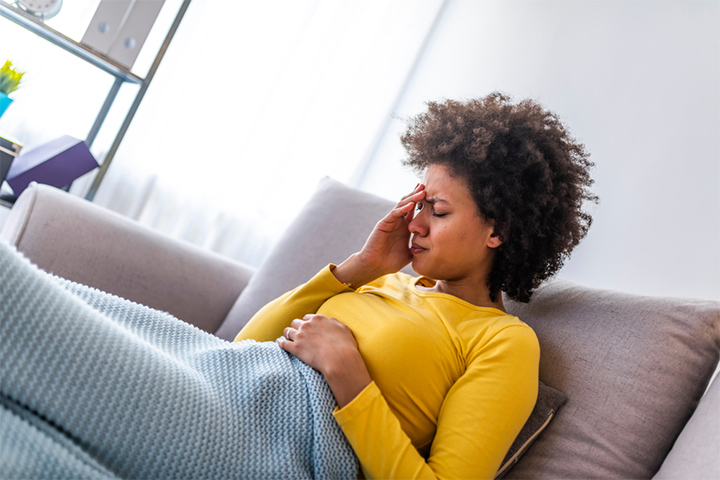
Image: Shutterstock
Have you been through a situation where you received a positive pregnancy result but ended up having your periods anyway? It probably was a false positive, but there is another probability as well — chemical pregnancy. More often than not, women don’t even realize they’ve had a chemical pregnancy, and the awareness around this is not as much as we’d like. Similarly, most of us complain about late periods with excessive bleeding and cramps. While this is normal, it can also be an indicator of a chemical pregnancy.
If you’re confused about that late period soon after a positive result from your pregnancy, read on, as we might have some answers for you!
What Is A Chemical Pregnancy?
Image: Shutterstock
Chemical pregnancy, also known as biochemical pregnancy, is essentially a miscarriage that happens very early in the pregnancy, somewhere before the fifth week, when the egg is fertilized but hasn’t reached the implantation stage yet. Although the term “chemical pregnancy” is relatively uncommon, it occurs more often than you’d expect. Close to fifty to sixty percent of first-time pregnancies end with an early miscarriage or chemical pregnancy (1), (2).
How To Tell If You’ve Had A Chemical Pregnancy?
Image: Shutterstock
The thing about chemical pregnancy is that you might not even know you’ve had it. This is because it happens soon after conception and well before the fifth week. Chances are, you haven’t even taken your pregnancy test this early. Most women assume that they’ve just had a late period. On the other hand, if you’ve been trying to conceive, mainly via assisted reproductive technology, you may realize that you’ve had a chemical pregnancy since you’re proactively keeping a tab on your cycle (3).
If you’ve had a chemical pregnancy, you will experience a late, heavier-than-usual period, as well as menstrual cramps. You may also notice clots. When you suspect that you’ve had a chemical pregnancy, you can confirm it with your doctor with a blood test or urine test. These tests can check the hCG level in your body, which can tell if you were pregnant. Human Chorionic Gonadotropin or hCG is a hormone that can signal pregnancy (4), (5).
The Road To Recovery
Image: Shutterstock
A miscarriage can be difficult to handle, irrespective of whether you have had it early or later on during your pregnancy. The physical toll it can take on you is one thing, but you also have to deal with the mental impact it can have on you.
Soon after a chemical pregnancy, it is essential to wait for at least your next period before attempting to conceive again. You will be able to resume regular physical activity after a chemical pregnancy but avoid intercourse for around two weeks after you’ve had the miscarriage. In most cases, your body treats this as another period, but if there is excessive bleeding, fever, chills, or cramps that last for days, consult your doctor (6).
The chances are that the uterine lining has not been discarded entirely, and this may cause complications. In worst-case scenarios, you will have to undergo a dilation and curettage procedure to remove any excess tissue that hasn’t made its way out. In this procedure, the cervix is first dilated, and the uterine lining is scraped out (7).
Knowing that you’ve had a chemical pregnancy might leave you overwhelmed and sometimes even hopeless. It is important to talk to your partner or friend about how you are feeling. Don’t downplay it just because it is an early miscarriage — it requires emotional care and healing, just as one needs during a late miscarriage. Reach out for medical assistance if you face any complications. Have you been through a chemical pregnancy? Tell us how you dealt with it in the comments below!















